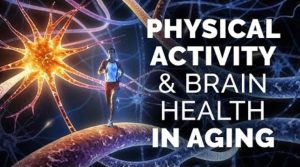In an era marked by the relentless pace of modern life, holistic health emerges as a guiding light—a pathway to well-being that transcends the limitations of conventional medicine. Holistic health represents a profound paradigm shift, one that acknowledges the interconnectedness of mind, body, and spirit, and the importance of treating the whole person rather than just the symptoms of a disease. In this comprehensive guide, we delve into the world of holistic health, exploring integrative medicine, alternative therapies, herbal remedies, and the wisdom of ancient healing traditions like Ayurveda and Traditional Chinese Medicine (TCM). These holistic approaches offer a tapestry of solutions for nurturing health and vitality in a way that is deeply rooted in nature and time-tested wisdom.
Table of Contents
ToggleIntegrative Medicine and Alternative Therapies
Blending Science and Nature: The Essence of Integrative Medicine
Integrative medicine represents a bridge between conventional medical practices and holistic health approaches, emphasizing the importance of treating the whole person.
Understanding Integrative Medicine
Exploring the principles of integrative medicine, its emphasis on patient-centered care, and the collaboration between medical disciplines.
The Role of Alternative Therapies
Highlighting alternative therapies such as acupuncture, chiropractic care, and naturopathy that are often integrated into holistic healthcare.
Evidence-Based Holistic Care
Discussing the growing body of scientific research supporting the efficacy of holistic therapies and their integration into mainstream medicine.

Herbal Remedies and Traditional Medicine
Nature’s Pharmacy: Exploring the Healing Power of Herbs
Herbal remedies and traditional medicine draw upon the innate wisdom of plants and ancient healing practices from around the world.
Herbal Healing Traditions
Examining the diverse traditions of herbal medicine, from Native American and Ayurvedic to Traditional Chinese Medicine, digital health and African herbalism.
The Science Behind Herbal Remedies
Delving into the bioactive compounds in herbs, herbal formulations, and the evidence supporting their efficacy in treating various health conditions.
Holistic Approaches to Wellness
Exploring how herbal remedies complement conventional medicine, providing natural alternatives for improved health and well-being.

Ayurveda and Traditional Chinese Medicine (TCM)
Ancient Wisdom for Modern Health: Ayurveda and TCM
Ayurveda and Traditional Chinese Medicine are centuries-old systems of healing that continue to offer profound insights into holistic health.
Ayurveda: The Science of Life
Uncovering the principles of Ayurveda, including doshas, diet, and personalized wellness practices that restore balance.
Traditional Chinese Medicine (TCM)
Exploring TCM’s concepts of Qi, Yin and Yang, acupuncture, herbal formulas, and the holistic approach to diagnosing and treating ailments.
Holistic Living with Ayurveda and TCM
Understanding how Ayurveda and TCM can be integrated into daily life to promote harmony, balance, and resilience.
Mind-Body Healing Practices
The Healing Power Within: Nurturing Mind and Body Connection
Mind-body healing practices emphasize the profound connection between mental and physical health, offering transformative tools for well-being.
Meditation and Mindfulness
Exploring the benefits of meditation and mindfulness for stress reduction, mental clarity, and emotional well-being.
Yoga as Medicine
Highlighting yoga’s role in holistic health, including its physical, mental, and spiritual benefits, and its therapeutic applications.
Energy Healing Modalities
Examining energy healing practices like Reiki and Qigong, which harness the body’s vital energy for healing and balance.
Conclusion
Holistic health is a profound journey into the art of living well, embracing the wisdom of ancient traditions, and harnessing the healing power of nature. It offers a holistic approach to health and well-being, acknowledging the intricate dance between mind, body, and spirit. From integrative medicine’s fusion of science and natural therapies to the ancient herbal wisdom of Ayurveda and TCM, and the transformative potential of mind-body practices, holistic health invites us to explore a world of wellness that transcends the limitations of conventional medicine.
As we navigate the complexities of modern life, holistic health stands as a beacon of hope, a reminder that we have within us the innate capacity to heal and thrive. It encourages us to seek balance, nurture our connection with nature, and awaken the healer within. In embracing the principles of holistic health, we embark on a journey of self-discovery and transformation—a journey that leads to greater vitality, resilience, and a harmonious relationship with the world around us. Let holistic health be your compass on this path to well-being, guiding you toward a life of holistic harmony and radiant health.
Frequently Ask Questions
1. What is modern vs holistic medicine?
- Modern medicine, often referred to as conventional or allopathic medicine, focuses on treating specific symptoms and diseases with medications and procedures. Holistic medicine, on the other hand, takes a broader approach, considering the entire person’s physical, mental, emotional, and spiritual well-being in the context of health and healing.
2. Is homeopathy and holistic the same?
- Homeopathy is a specific system of alternative medicine that uses highly diluted substances to stimulate the body’s natural healing abilities. While homeopathy can be a part of holistic healthcare, holistic medicine encompasses a wider range of practices and philosophies, including lifestyle, nutrition, and other natural therapies.
3. What are the 5 aspects of the holistic model?
- The five aspects of the holistic model typically include physical, mental, emotional, social, and spiritual well-being. Holistic healthcare addresses each of these dimensions to promote overall health and balance.
4. What is an example of a holistic medicine?
- Examples of holistic medicine include acupuncture, chiropractic care, herbal medicine, meditation, yoga, and naturopathy. These therapies consider the whole person and aim to address underlying causes of health issues.
5. What is another word for holistic?
- Synonyms for holistic include comprehensive, integrated, complete, and all-encompassing.
6. Why is holistic medicine better?
- Whether holistic medicine is “better” depends on individual preferences and health needs. Holistic medicine is often valued for its patient-centered approach, focus on prevention, and consideration of the whole person. It may be particularly beneficial for chronic conditions and maintaining overall wellness.
7. What is holistic treatment?
- Holistic treatment refers to healthcare approaches that address not only the physical symptoms but also the mental, emotional, social, and spiritual aspects of a person’s health. It often includes a combination of therapies and lifestyle changes.
8. What is a holistic lifestyle?
- A holistic lifestyle is one that emphasizes balance and well-being in all aspects of life, including physical, mental, emotional, social, and spiritual dimensions. It often involves practices like mindfulness, healthy nutrition, regular exercise, and stress management.
9. Who created the term holistic?
- The term “holistic” has ancient roots and has been used in various cultures throughout history. It gained prominence in modern healthcare in the mid-20th century as a reaction to the reductionist approach of conventional medicine.
10. What is the opposite of holistic health?
The opposite of holistic health might be described as “fragmented” or “reductionist” healthcare, where the focus is primarily on treating specific symptoms or diseases without considering the whole person’s well-being.
11. What are 3 examples of holistic health?
Three examples of holistic health practices are acupuncture, meditation, and nutritional therapy. These practices consider various dimensions of health and well-being.
12. What is the concept of holistic care?
Holistic care is an approach to healthcare that considers the physical, mental, emotional, social, and spiritual aspects of a person’s health. It aims to provide comprehensive and individualized care to promote overall well-being.
13. What are the pillars of holistic health?
The pillars of holistic health often include physical health, mental and emotional health, social well-being, and spiritual wellness. These dimensions are interconnected and contribute to overall holistic well-being.
14. Why is it called holistic medicine?
Holistic medicine is called so because it considers the whole person, addressing not only physical symptoms but also mental, emotional, social, and spiritual aspects of health. It aims to treat the person as a whole, not just their disease or symptoms.
15. What is the difference between holistic and natural medicine?
Holistic medicine is a broader approach that considers the whole person’s well-being, while natural medicine focuses on using natural remedies and therapies in healthcare. Natural medicine can be a part of holistic healthcare, but holistic medicine encompasses a wider range of practices and philosophies.
16. What are holistic health benefits?
Holistic health benefits include improved overall well-being, better management of chronic conditions, reduced stress, enhanced mental and emotional health, and a more balanced and fulfilling life.
17. What is the concept of holistic?
The concept of holistic is based on the idea that the whole is greater than the sum of its parts. It emphasizes the interconnectedness of various aspects of life and health and the importance of considering all these dimensions for true well-being.
18. What are the 3 core components of the holistic model?
The three core components of the holistic model typically include the mind, body, and spirit. These components are interconnected and influence an individual’s overall health.
19. What is the most important holistic health?
All aspects of holistic health are considered important, and their significance can vary from person to person. The most important aspect often depends on an individual’s unique health needs and goals.
20. What are the 4 pillars of holistic development?
The four pillars of holistic development typically include physical, mental, emotional, and social well-being. These pillars collectively contribute to a person’s overall development and growth.
More Stories
From Fear to Freedom: Understanding and Managing Panic Attacks
What Are Panic Attacks? Panic attacks are sudden periods of intense fear or discomfort that peak within minutes. These episodes...
Unlocking a New You: The Complete Guide to Hair Transplant in Dubai
In recent years, Dubai has become a hotspot for medical tourism, particularly for cosmetic procedures. Among these, hair transplants have...
Batana Oil Benefits: A Hidden Gem for Hair and Skin Care
Batana oil, often referred to as "liquid gold" for hair and skin, is one of nature’s best-kept secrets. Extracted from...
How to Choose the Best Steroid Cycles for Cutting Safely and Effectively
The key to getting ultra lean is the best steroid cycles for cutting. The cutting phase is one at which...
Revolutionizing Addiction Recovery: The Rise of Virtual Suboxone Treatment
Addiction treatment has long been a challenge for both patients and providers, requiring access to specialized care and consistent support....
Optimize Your Wellness with Health Hub Singapore: The Ultimate Health Resource
In a rapidly evolving world where health and well-being are increasingly prioritized, having access to a trusted source of quality...


